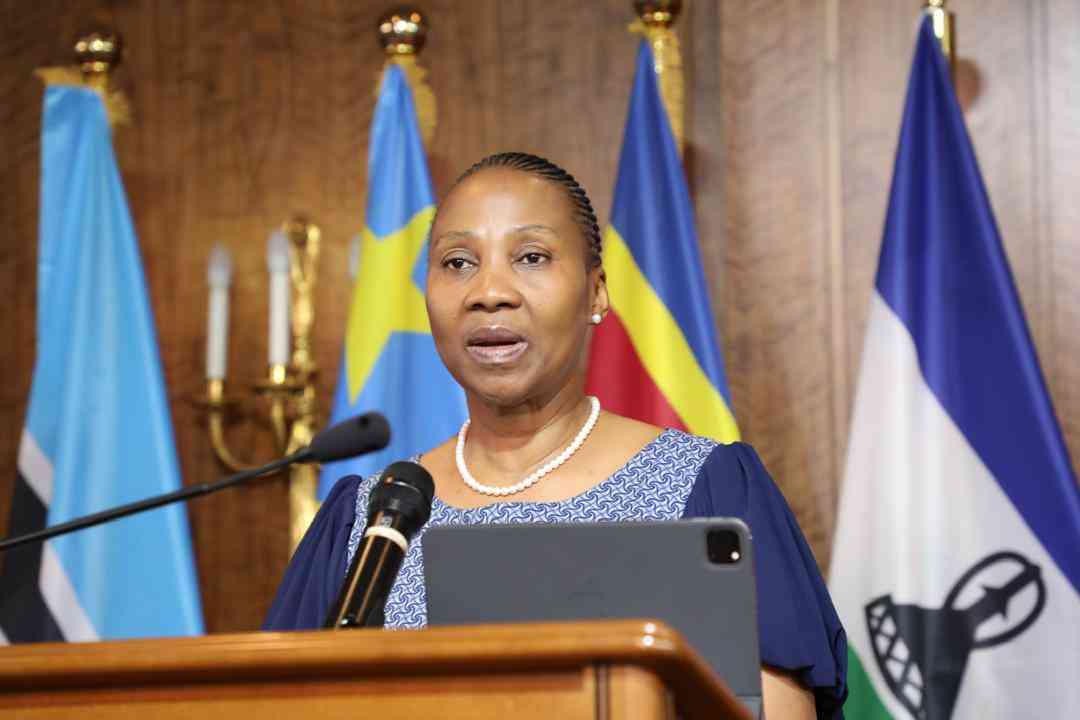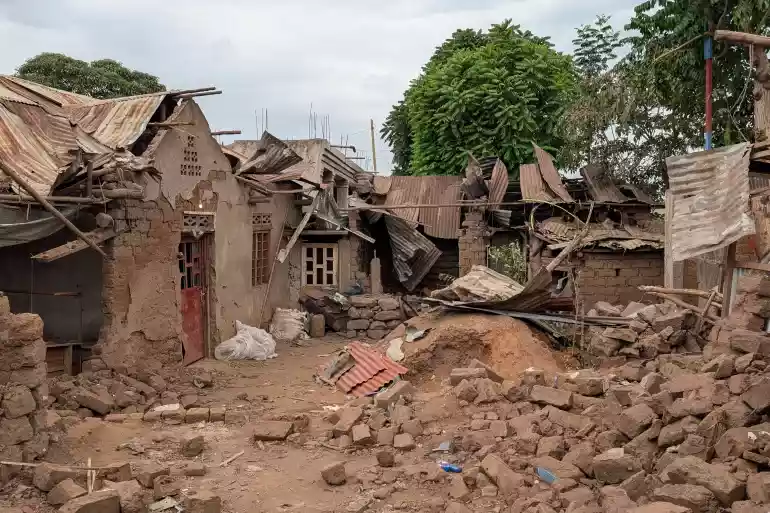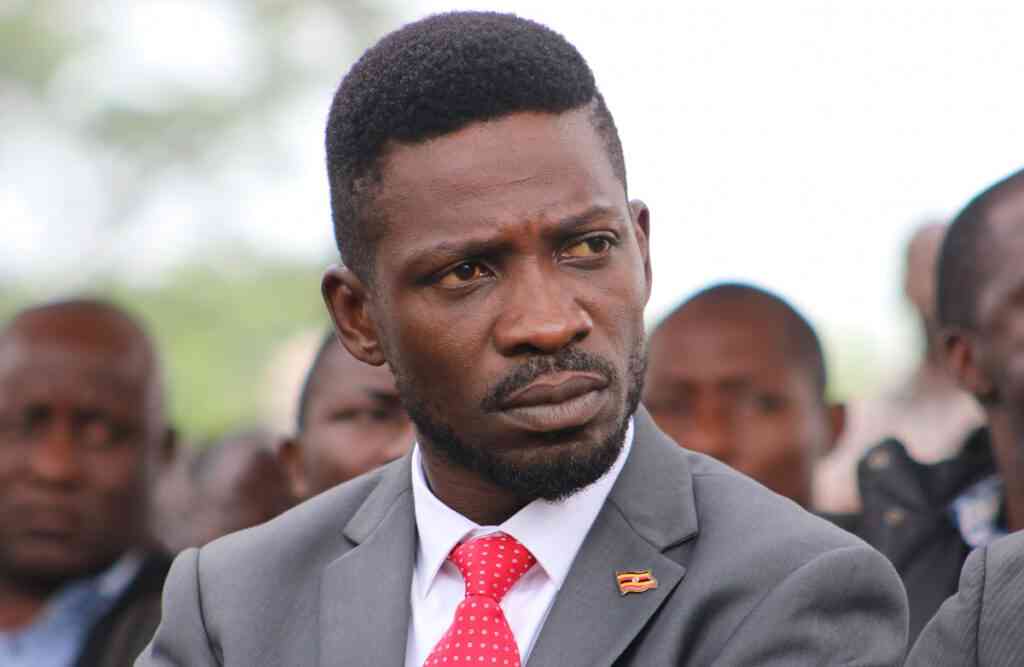
THE SADC Parliamentary Forum (SADC PF) has set itself ambitious goals aimed at advancing the collective interests and development of the organisation’s member parliaments by December 31, 2028.
SADC PF secretary-general Boemo Sekgoma said this when she presented the Forum’s new Strategic Plan (2024-2028) at the 55th Plenary Assembly hosted by the Parliament of Angola in Luanda from July 1 to 7, 2024.
The plenary asembly is the highest policy-making and deliberative organ of the SADC PF.
With a budget of slightly more than US$37,4 million over the five-year period, Sekgoma said the plan has revamped the conceptualisation of parliamentary engagement by building on the four parliamentary functions to promote its vision of enhancing democratisation and socio-economic development. These functions include legislation, alignment with model laws, budget and oversight.
“The strategic plan presents a comprehensive roadmap for advancing the organization’s objectives and fostering positive change within the region and encompasses a range of strategic initiatives aimed at addressing critical areas including social development and inclusivity; regional integration and collaboration as well as enhanced legislative effectiveness,” she said.
Sekgoma said the vision of the forum is to be the proponent for robust democracies that propitiously deliver human rights, climate justice and socio-economic prosperity for southern Africa.
“Our mission is to empower parliamentary democracies of the region to implement human rights regimes to their optimum extent, protect the environment by reducing the carbon footprint, and promote socio-economic measures which implement the SDGs, in particular SDG 3 relating to health and wellbeing, and SDG 5 relating to gender equality,” she said.
She added that the forum would strive to meet the needs of its stakeholders, while being appreciative of their scarce resources, their diversity and their expectations.
- Strengthen SRH rights, govts urged
- ‘Prioritise Sadc regional integration’
- SADC PF Standing Committee meets over food security and sustainable agriculture
- Focus on children as SADC PF Committee meets
Keep Reading
According to Sekgoma, the strategic plan aims to achieve a 40% improvement in parliamentary effectiveness and performance through sustainable capacity development programmes for MPs, national parliaments, and staff as measured by key performance indicators by 2028. This involves legislative skills enhancement, regional parliament and governance training.
“The plan aims to increase the satisfaction levels of Members of Parliament to 75% through targeted capacity building programmes and advocacy support tailored to their needs and priorities by 2028,” she explained.
Additionally, she said the strategy sets out to achieve a 20% improvement in operational efficiency and transparency through enhanced planning, financial management and governance as measured by key performance indicators and audits by 2028.
The plan also envisages successful implementation of parliamentary initiatives that contribute towards addressing climate change and promoting eco-friendliness, resulting in a measurable reduction of carbon emissions by at least 30% compared to the baseline year by 2028.
She reasoned that this could be done by establishing a regional climate change task force, strengthening legislative frameworks and promoting renewable energy investments.
Sekgoma said SADC PF plans to increase staff engagement to 80% through professional development programmes, a supportive work environment and career growth opportunities within the Secretariat by 2028.
“We will look at skills alignment, aligning structure to strategy, implementation of performance management and rewinding alignment,” she said.
According to the secretary-general, the forum would secure sustainable financial resources as determined by the membership for operations of the SADC PF by 2028. This would involve partnership development, comprehensive fund-raising strategies and a review of the member subscription model, among others.
She said in implementing the strategic plan, SADC PF would be guided by the principle of respect for the institution of parliament: the recognition of the sacrosanct principle of separation of powers, in which the State operates through three branches notably the Executive, Judiciary and Parliament - which is the exclusive and sole law-making body of the state.
“The forum also has respect for democracy and democratisation, mainly respect for the institution of parliament which necessarily flows from the state of democracy; respect for the rule of law; respect for human rights and respect for financial accountability and transparency,” she highlighted.
She said the strategic goals of the forum depend substantively on the adoption and domestication of model laws on thematic focus areas. The forum is mandated by its plenary assembly to develop and monitor the domestication of model laws, minimum standards and other related normative instruments.
Sekgoma added that over the years, the model laws developed by the forum had become crucial legislative benchmarks for SADC Parliaments.
Legal and administrative norms in the fields of SRHR, HIV, child marriage, gender-based violence, public financial management had been developed, she added.
She stressed that the new Strategic Plan emphasises the need for the Forum to pursue advocacy on the domestication of model laws in collaboration with member parliaments and the forum’s dedicated organ, the Regional Parliamentary Model Laws Oversight Committee (RPMLOC).
“Domestication of model laws is thus an initiative of this strategic plan which relies significantly on consolidating the forum’s existing partnership with multi-stakeholders who have similar objectives in pursuing democracy, advancing human rights and addressing climate justice. These include parliaments, citizens, CSOs, and policy makers,” she said.
The forum’s partnership framework as well as the results of past partnership initiatives would act as a guiding benchmark for the next five years, she added.
On the environment front, Sekgoma said the forum had set itself the green objective of ensuring it is environment-friendly, with a minimum carbon footprint. It also aims to ensure that parliamentary initiatives are geared toward progressively implementing the Paris Agreement (2015) on climate change and improving Nationally Determined Contributions (NDCs).
Sekgoma said as the implementation of the strategic plan unfolds, the Forum’s media strategy was hinged on an outreach initiative that covers the maximum number of Parliamentarians and other parliamentary representatives, as well as multi-stakeholders in Southern Africa and beyond.
“While the website of the forum is a vast source of forum information and publications, the SADC-PF will also release statements on social media platforms such as X and through WhatsApp,” she said.
The Speaker of the National Assembly of Angola, Carolina Cerqueira, who hosted the SADC PF’s 55th Plenary Assembly, launched the strategic plan and unveiled it alongside the President of SADC PF, Honourable Roger Mancienne.
The speaker of the National Assembly of Namibia and host of then secretariat of the SADC PF, Professor Peter Katjavivi, was among speakers of national parliaments from the SADC region who witnessed the launch of this strategy.
He said it would propel the forum further and pledged his full support to its implementation.
He said: “The SADC PF’s new strategic plan aims to revamp its conceptualization to parliamentary engagement by building on four key functions, these being representation, legislation, budget, and oversight. The forum aims to domesticate model laws with member parliaments in a partnership framework whose success will depend on a sustainable financial plan or budget to maximize the realization of this strategic plan.”
He expressed optimism that a trust fund recently set up by SADC PF would be useful in mobilizing more resources for the successful implementation of the new strategic plan.











